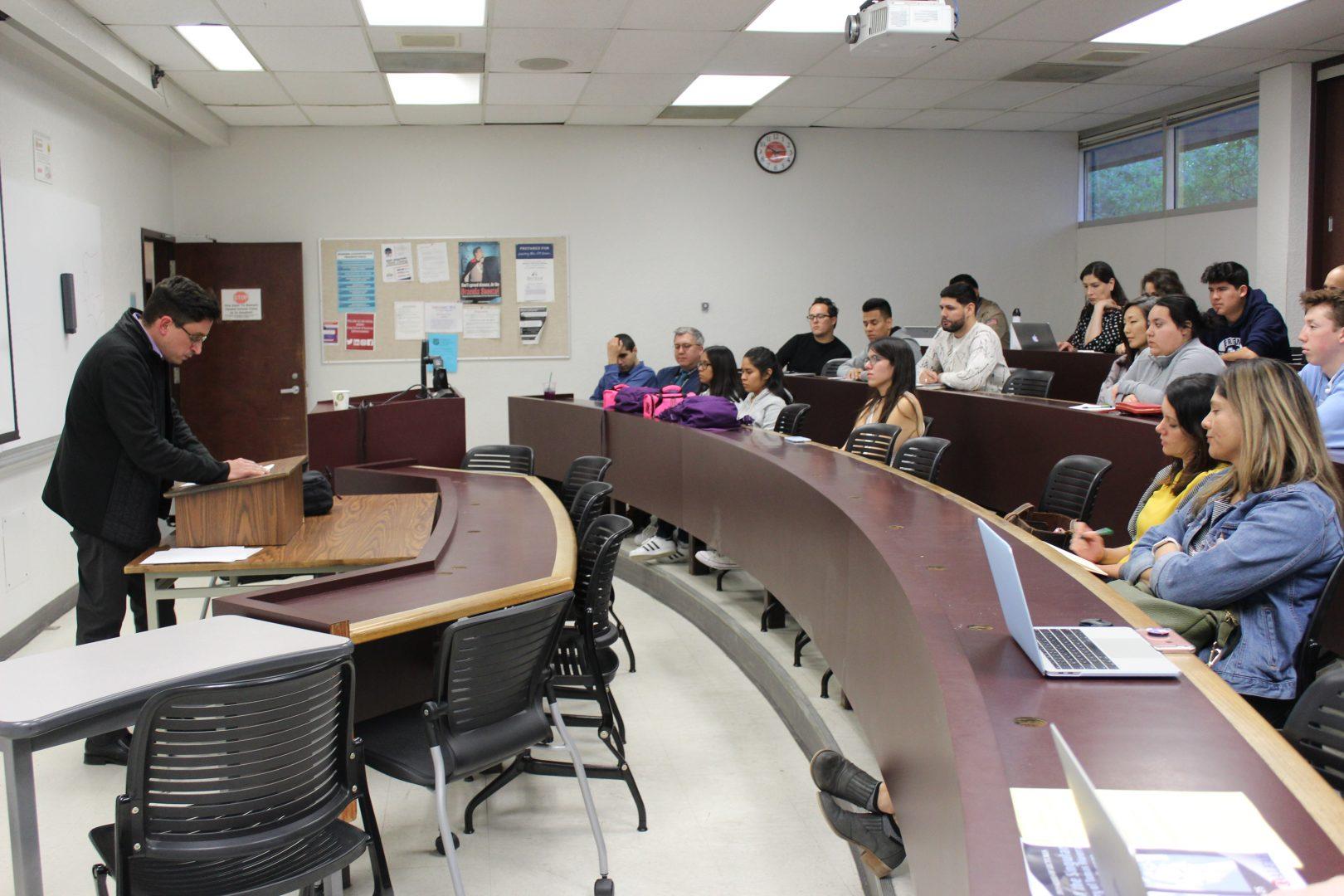About 25 people attended Friday’s lecture hosted by the Association of Latinx Faculty in the Arts and Humanities (ALFAH), featuring assistant professor of modern and classical languages and literatures Dr. Jaime RodrÃguez Matos as the first presenter.
ALFAH is an organization of Latino tenure-stream faculty within Fresno State’s College of Arts and Humanities founded fall of 2018.
“ALFAH has been created to give us a space to nurture ideas and needs that are unique to Latinx researchers and teachers who focus on the humanities and the arts,” said ALFAH President and professor of communications Dr. Shane Moreman in a press release.
RodrÃguez Matos lectured from his work-in-progress research analyzing the poetry of Tomás Rivera and Juan Felipe Herrera. RodrÃguez Matos said his research in this area is less a scholarly matter, but more existential.
RodrÃguez Matos read poetry in both Spanish and English to a diverse audience of faculty, staff and students. He focused his lecture mostly on the work of Herrera.
He explained that throughout Herrera’s body of work is a central theme of embracing “nothingness” as both a positive entity and a solution to rebelling against political systems without engaging in group consensus.
“No matter what we do, it doesn’t seem to change [our political situation],” RodrÃguez Matos said. “So at some point you have to step back and say, ‘We’re going to have to rethink what’s happening…’ How do you step away from [various] types of politics without becoming apolitical or conservative? To me, that is what Herrera is doing. He’s saying, ‘Something here is not working.’”
Herrera’s political theory suggests that revolting against one political system in favor of another repeats the process in an endless cycle. RodrÃguez Matos theorized that this group consensus mentality perpetuates the problem.
“I gave a talk against Trump in Mexico the day he was being sworn in,” RodrÃguez Matos said. “I’m not saying you shouldn’t do that. But at the same time, after saying I did that, there’s nothing easier than [saying], ‘Let’s all get together and feel good and say bad things about this obvious thing that is horrible.’”
Herrera’s poetry considers how to be political in a different way.
“And that, to me, is a very worthwhile thing,” RodrÃguez-Matos said.
ALFAH will continue to host Latino faculty members once a month this semester to share their research. All lectures are free and open to the public.




